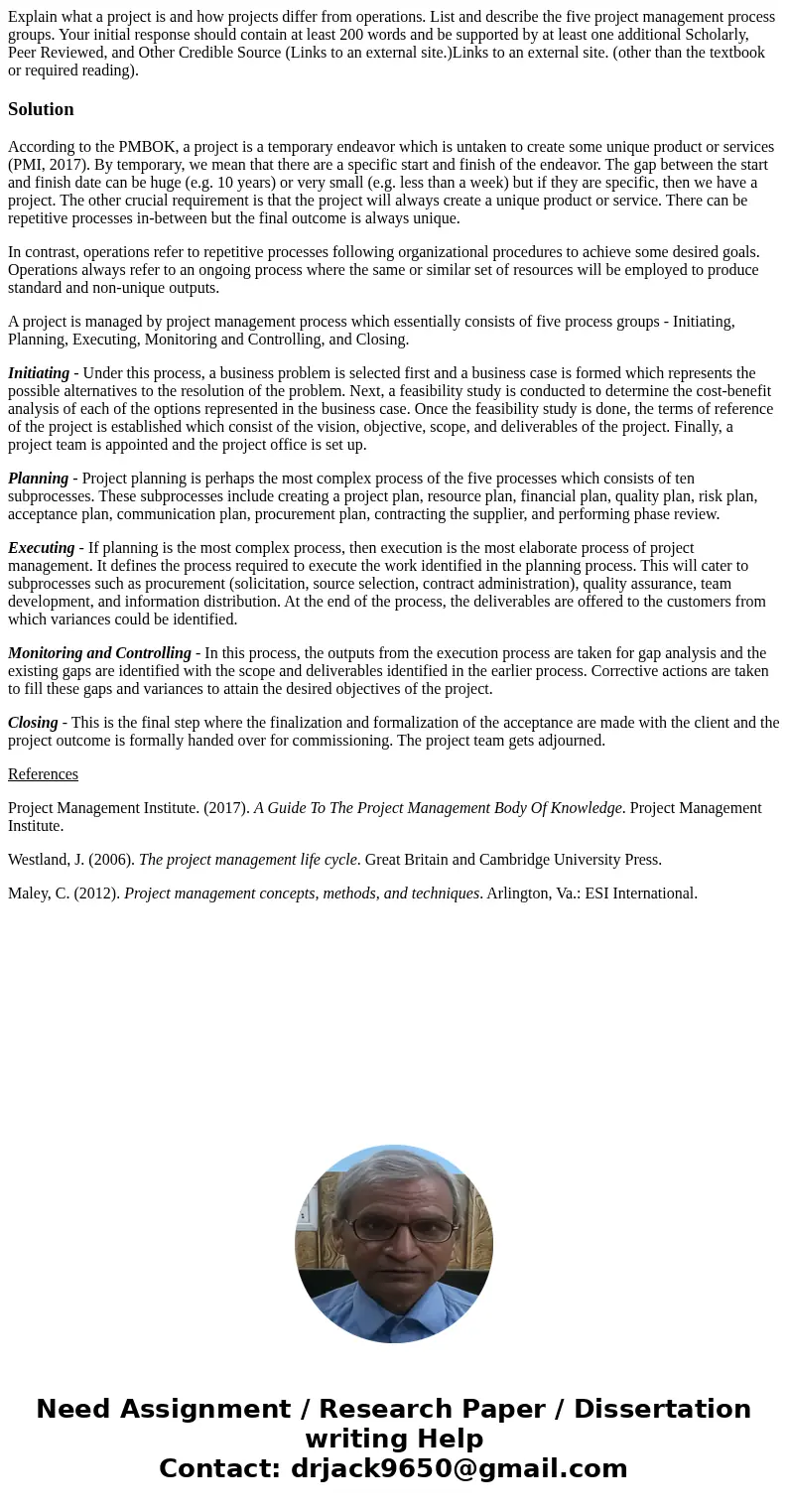Explain what a project is and how projects differ from opera
Explain what a project is and how projects differ from operations. List and describe the five project management process groups. Your initial response should contain at least 200 words and be supported by at least one additional Scholarly, Peer Reviewed, and Other Credible Source (Links to an external site.)Links to an external site. (other than the textbook or required reading).
Solution
According to the PMBOK, a project is a temporary endeavor which is untaken to create some unique product or services (PMI, 2017). By temporary, we mean that there are a specific start and finish of the endeavor. The gap between the start and finish date can be huge (e.g. 10 years) or very small (e.g. less than a week) but if they are specific, then we have a project. The other crucial requirement is that the project will always create a unique product or service. There can be repetitive processes in-between but the final outcome is always unique.
In contrast, operations refer to repetitive processes following organizational procedures to achieve some desired goals. Operations always refer to an ongoing process where the same or similar set of resources will be employed to produce standard and non-unique outputs.
A project is managed by project management process which essentially consists of five process groups - Initiating, Planning, Executing, Monitoring and Controlling, and Closing.
Initiating - Under this process, a business problem is selected first and a business case is formed which represents the possible alternatives to the resolution of the problem. Next, a feasibility study is conducted to determine the cost-benefit analysis of each of the options represented in the business case. Once the feasibility study is done, the terms of reference of the project is established which consist of the vision, objective, scope, and deliverables of the project. Finally, a project team is appointed and the project office is set up.
Planning - Project planning is perhaps the most complex process of the five processes which consists of ten subprocesses. These subprocesses include creating a project plan, resource plan, financial plan, quality plan, risk plan, acceptance plan, communication plan, procurement plan, contracting the supplier, and performing phase review.
Executing - If planning is the most complex process, then execution is the most elaborate process of project management. It defines the process required to execute the work identified in the planning process. This will cater to subprocesses such as procurement (solicitation, source selection, contract administration), quality assurance, team development, and information distribution. At the end of the process, the deliverables are offered to the customers from which variances could be identified.
Monitoring and Controlling - In this process, the outputs from the execution process are taken for gap analysis and the existing gaps are identified with the scope and deliverables identified in the earlier process. Corrective actions are taken to fill these gaps and variances to attain the desired objectives of the project.
Closing - This is the final step where the finalization and formalization of the acceptance are made with the client and the project outcome is formally handed over for commissioning. The project team gets adjourned.
References
Project Management Institute. (2017). A Guide To The Project Management Body Of Knowledge. Project Management Institute.
Westland, J. (2006). The project management life cycle. Great Britain and Cambridge University Press.
Maley, C. (2012). Project management concepts, methods, and techniques. Arlington, Va.: ESI International.

 Homework Sourse
Homework Sourse